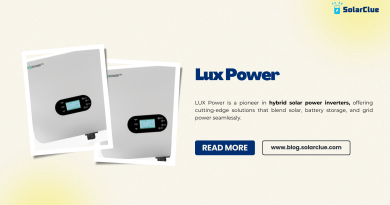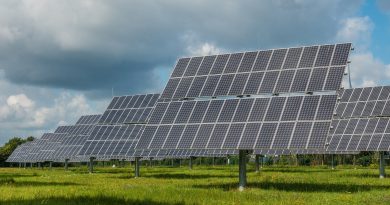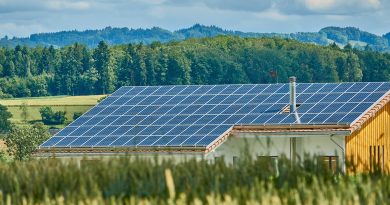How To Identify Original Solar Panel?
As solar energy continues to grow in popularity, the market has seen an increase in counterfeit solar panels. Identifying genuine solar panels is crucial to ensuring the longevity and efficiency of your solar power system. This guide will help you understand the importance of verifying product authenticity and provide practical steps to avoid counterfeit products.
Table of Contents
- 0.1 The Importance of Identifying Original Solar Panels
- 0.2 Manufacturer Reputation and Brand Recognition
- 0.3 Certifications and Standards
- 0.4 Physical Inspection for Quality and Authenticity
- 0.5 Verifying Documentation and Paperwork
- 0.6 Common Signs of Counterfeit Solar Panels
- 0.7 Protecting Yourself from Solar Panel Fraud
- 0.8 The Role of Government Regulations in Ensuring Product Authenticity
- 0.9 Case Studies of Counterfeit Solar Panels and Their Consequences
- 0.10 Tips for Purchasing Genuine Solar Panels from Reputable Suppliers
- 1 Frequently Asked Questions (FAQs)
The Importance of Identifying Original Solar Panels
Investing in genuine solar panels is essential for several reasons:
- Efficiency and Longevity: Genuine panels are designed to meet specific performance standards, ensuring they operate efficiently and last for their intended lifespan.
- Safety: Counterfeit panels may not adhere to safety standards, increasing the risk of electrical faults, fires, and other hazards.
- Warranty and Support: Authentic panels come with manufacturer warranties and after-sales support, offering protection and peace of mind.
- Financial Return: Genuine panels provide reliable energy production, leading to better financial returns on your investment.
Manufacturer Reputation and Brand Recognition
The reputation of the manufacturer plays a significant role in ensuring the authenticity of solar panels:
- Established Brands: Choose panels from well-known and established manufacturers with a history of quality and reliability.
- Market Presence: Brands with a strong market presence are less likely to produce counterfeit products.
- Customer Reviews: Research customer reviews and testimonials to gauge the experiences of other buyers.
Certifications and Standards
Certifications are a key indicator of a solar panel’s authenticity and quality:
| Certification | Description |
|---|---|
| IEC (International Electrotechnical Commission) | Ensures the panel meets international standards for performance, safety, and durability. |
| UL (Underwriters Laboratories) | Indicates that the panel has been tested for safety and performance. |
| ISO (International Organization for Standardization) | Certifies that the manufacturing process meets international quality standards. |
| TUV Rheinland | A third-party certification that ensures the panel’s reliability and quality. |
Physical Inspection for Quality and Authenticity
A physical inspection of the solar panels can reveal important details about their authenticity:
- Check the Weight: Genuine solar panels have a certain weight due to the quality of materials used. Counterfeit panels may feel lighter.
- Inspect the Frame: The frame should be robust, with clean edges and no visible signs of tampering or poor workmanship.
- Examine the Junction Box: The junction box should be securely attached with proper seals. Look for branding and certification marks.
- Look for Labels: Genuine panels will have labels with the manufacturer’s name, logo, serial number, and certification marks.
- Assess the Solar Cells: Solar cells should be uniform in color and alignment, with no visible defects or inconsistencies.
Verifying Documentation and Paperwork
Proper documentation is critical in verifying the authenticity of solar panels:
- Purchase Invoice: Ensure the invoice matches the product details and includes the manufacturer’s information.
- Warranty Documents: Genuine panels come with warranty documentation specifying the terms and conditions.
- Certification Documents: Request certification documents from the seller and verify them with the issuing bodies.
- Serial Number Verification: Contact the manufacturer directly to verify the serial numbers on the panels.
Common Signs of Counterfeit Solar Panels
Counterfeit solar panels can often be identified by the following signs:
- Suspiciously Low Prices: If the price seems too good to be true, it likely is.
- Inconsistent Branding: Look for mismatched logos, fonts, or colors on the branding.
- Poor Quality Materials: Counterfeit panels may use substandard materials, leading to a flimsy construction.
- Lack of Certifications: Genuine panels will have certifications. If these are missing or look forged, it’s a red flag.
- No Customer Support: Counterfeit products often come with no or poor customer support.
Protecting Yourself from Solar Panel Fraud
To protect yourself from purchasing counterfeit solar panels, follow these tips:
- Buy from Reputable Suppliers: Purchase from authorized dealers and well-known suppliers with a good reputation.
- Research Before Buying: Spend time researching the brand, reading reviews, and understanding the product specifications.
- Ask for Documentation: Always request and verify all relevant documentation, including warranties and certifications.
- Inspect the Product: If possible, physically inspect the panels before purchasing to ensure they meet quality standards.
- Check for Recalls: Look up the product to see if there have been any recalls or reported issues.
The Role of Government Regulations in Ensuring Product Authenticity
Government regulations play a vital role in maintaining the integrity of the solar panel market:
- Import Regulations: Governments often have strict regulations on importing solar panels, ensuring they meet safety and performance standards.
- Certification Requirements: Some regions require specific certifications for panels to be sold legally, protecting consumers from counterfeit products.
- Regular Inspections: Regulatory bodies may conduct inspections and audits to ensure compliance with standards.
Case Studies of Counterfeit Solar Panels and Their Consequences
Understanding the impact of counterfeit solar panels can highlight the importance of purchasing genuine products:
- Case Study 1: A large-scale solar farm in Africa purchased counterfeit panels that failed within a year, leading to significant financial losses and legal issues.
- Case Study 2: Homeowners in Europe unknowingly installed counterfeit panels, resulting in electrical fires and damage to property, with no recourse due to the lack of warranty.
Tips for Purchasing Genuine Solar Panels from Reputable Suppliers
Follow these tips to ensure you are purchasing genuine solar panels:
- Choose Authorized Dealers: Only buy from dealers who are authorized by the manufacturer.
- Verify the Supplier: Check the supplier’s credentials, reviews, and history in the industry.
- Request a Site Visit: If possible, visit the supplier’s warehouse or showroom to inspect the panels in person.
- Seek Recommendations: Ask for recommendations from industry professionals or previous customers.
- Check for Return Policies: Ensure the supplier offers a return policy in case the panels are found to be counterfeit.
Frequently Asked Questions (FAQs)
Q1: Why is it important to identify genuine solar panels?
A1: Genuine solar panels ensure efficiency, safety, longevity, and reliable financial returns, while counterfeit panels can lead to safety hazards and financial losses.
Q2: How can I verify the authenticity of a solar panel’s certification?
A2: Contact the certification body or manufacturer directly to verify the serial number and certification details.
Q3: What are the common signs of a counterfeit solar panel?
A3: Signs include suspiciously low prices, inconsistent branding, lack of certifications, poor-quality materials, and no customer support.
Q4: Can I rely on the weight of the panel to determine its authenticity?
A4: Yes, genuine panels generally have a certain weight due to high-quality materials. Counterfeit panels may feel lighter and less sturdy.
Q5: What documentation should I ask for when purchasing solar panels?
A5: Request the purchase invoice, warranty documents, certification documents, and serial number verification.
Q6: How can government regulations help prevent counterfeit solar panels?
A6: Regulations ensure that only certified and authentic panels are imported and sold, protecting consumers from fraudulent products.
Q7: What should I do if I suspect I’ve purchased counterfeit solar panels?
A7: Contact the supplier immediately, report the issue to the relevant authorities, and consult the manufacturer for verification.
Q8: Are there specific certifications I should look for when buying solar panels?
A8: Look for certifications like IEC, UL, ISO, and TUV Rheinland, which indicate that the panels meet international quality and safety standards.
Purchasing genuine solar panels is essential to ensure the safety, efficiency, and longevity of your solar power system. By following this guide, you can make informed decisions and protect yourself from counterfeit products, securing a reliable and sustainable energy source for years to come.



